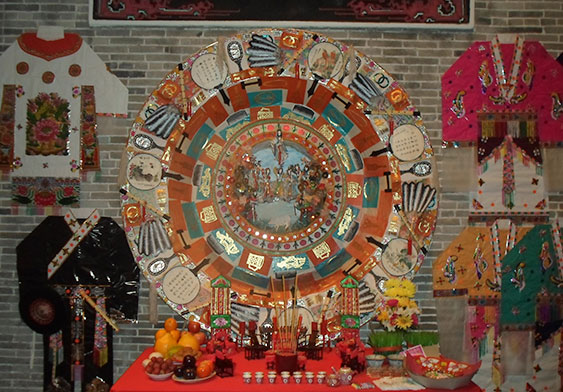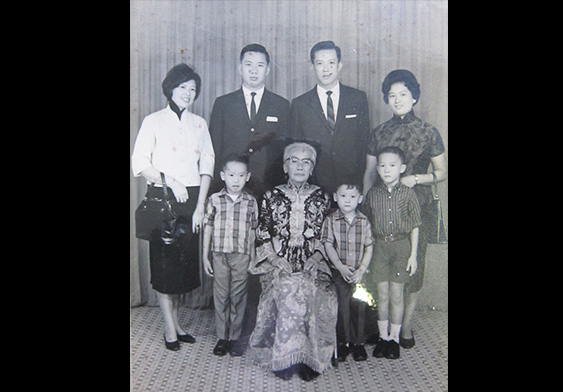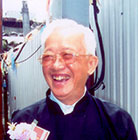
Typical offerings at the Seven Sisters Festival
In the centre of this picture can be seen a qijiepan and a variety of spinster paper accessories. This photo was taken at the Hong Kong Museum of History-Photo taken by HKMP Team (2012)
Typical offerings at the Seven Sisters Festival
In the centre of this picture can be seen a qijiepan and a variety of spinster paper accessories. This photo was taken at the Hong Kong Museum of History-Photo taken by HKMP Team (2012)

A post-war family portrait
Lee Foo and his mother, elder sister, younger brother, wife and three sons pose for a photo during the 1960s-Provided by Lee Foo
A post-war family portrait
Lee Foo and his mother, elder sister, younger brother, wife and three sons pose for a photo during the 1960s-Provided by Lee Foo
Pre-war rural traditions included customs such as Pok Sin and the burning of paper mache clothes
“Pok Sin” is the Chinese opera staged on the seventh lunar month and at Mid-Autumn Festival. The host was Master Meng She. Meng She lived in a house in Nga Tsin Wai and stayed unmarried till the end of his life. He always hosted celebrations and funerals for the villagers for free. He made a living by picking seafood and vegetables. The village children also referred to Pok Sin as Pok San Ngau Tsai (Note: transliteration only). When it starts, a villager is claimed by the village children to be possessed and shakes with sound of the percussion. The possessed person would not even feel the pain of having burning incense on his or her body. The objective of Pok Sin is to drive away evil spirits. It attracted many village children to gather around the village gate to watch.
The seventh day of the seventh lunar month is the Qixi Festival. Rural people usually burnt offerings on the street to honour the spirits. Money would be cast after the burning, and children would fight to pick up the one-cent or two-cent notes on the ground. When children asked for money from shops like Law Sam Kee, they would chant: If you burn offerings without casting money, your wife would be harassed by the spirits tonight. Qixi Festival was a popular festival before WWII. It was particularly important to the “Ah Ma” (maids) who stayed unmarried for their whole lives.


 BACK
BACK  CLOSE
CLOSE 